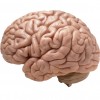
Let's face the important truth: stuff is stressful. You have to find a place for the stuff. You have to organize the stuff. You have to dust or otherwise clean the stuff. And this may be the most important truth of all: much of this stuff may only be important to you. More so now than ever before, people are working to de-clutter their lives. read more

Many factors influence where seniors choose to live. If seniors are relatively healthy and working at their usual jobs surrounded by familiar colleagues (some of whom have become friends) until the specified retirement age (usually 65), the fact that they are now classified as seniors does not immediately make much of an impact on them. There are, however, things they will miss. read more

For various reasons, many children were unable to obtain an elementary or secondary education. Some of these had the ability and the desire to get a high school diploma, but they kept encountering road blocks along the way. Eventually educational authorities started trying harder to find ways to help individual's access elementary and secondary educational facilities. Basic education learning outlets began to pop up; and not too long thereafter, the GED (Grade Equivalency Diploma) came into existence. Many children, middle-agers and seniors took advantage of these opportunities. read more

Love gardening? Shakespeare? Robotics? Ever wanted to delve into philosophy or explore an artistic technique? Heading back to college just may be the answer. An ever-increasing number of colleges and universities across the country are welcoming seniors into the classroom—for free or with dramatically reduced tuition. In your retirement, enrolling in a class (or two) just may provide the social and intellectual engagement you've been considering without a hefty price tag. read more

Research has shown that mental exercise during someone's lifetime (from early to late ages) can contribute to a slower mental decline in old age. Studies report that the actions you take can help keep your mind as sharp as possible when you age. Mental exercise helps your brain stay active and alive so your thinking and reasoning skills, memory, and processing speed remain as strong as possible. read more







